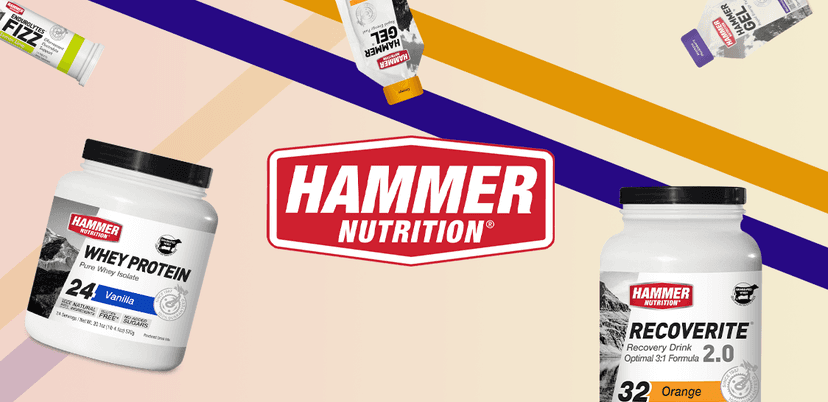Inflammation is a natural response by the body to injury or illness, but when it becomes chronic, it can lead to serious health problems. By making smart choices in your diet and lifestyle, you can help reduce inflammation and improve your overall well-being. This article will guide you through understanding inflammation, identifying anti-inflammatory foods, and adopting lifestyle changes that promote a healthier life.
Key Takeaways
- Inflammation is the body's response to injury or illness, but chronic inflammation can cause health issues.
- Eating fruits, vegetables, healthy fats, and whole grains can help reduce inflammation.
- Regular exercise, stress management, and adequate sleep are crucial for lowering inflammation.
- Staying hydrated is essential for managing inflammation effectively.
- Avoiding processed foods, smoking, and excessive alcohol can prevent inflammation.
Understanding Inflammation and Its Impact on Health
What is Inflammation?
Inflammation is your body's way of protecting itself from harm, like infections, injuries, or toxins. When you get a cut or bruise, inflammation helps to heal the wound. However, when inflammation doesn't turn off, it can become harmful. This ongoing inflammation can damage healthy cells and tissues, leading to various diseases.
How Inflammation Affects the Body
Chronic inflammation can cause changes in your cells, leading to premature cell death and diseases such as diabetes, heart disease, and cancer. It can also affect your organs and joints, making them less functional over time. The immune system, which usually protects you, can start to attack healthy parts of your body.
Chronic vs. Acute Inflammation
Acute inflammation is short-term and usually beneficial, helping your body to heal from injuries or infections. Chronic inflammation, on the other hand, is long-lasting and can be harmful. It can lead to serious health issues like arthritis, asthma, and Alzheimer's disease. While some factors like aging can't be changed, many lifestyle choices can help manage inflammation.
Inflammation is a double-edged sword: it can heal but also harm if not properly regulated.
Key Anti-Inflammatory Foods to Include in Your Diet
Fruits and Vegetables
Fruits and vegetables are packed with antioxidants and nutrients that help fight inflammation. Aim to include a variety of colorful fruits and veggies in your meals. Some top choices are:
- Berries like strawberries, blueberries, and cherries
- Leafy greens such as spinach, kale, and collards
- Tomatoes and bell peppers
Healthy Fats and Oils
Healthy fats are essential for reducing inflammation. Incorporate these into your diet:
- Olive oil
- Fatty fish like salmon, mackerel, and sardines
- Nuts and seeds, including almonds and walnuts
Whole Grains and Nuts
Whole grains and nuts provide fiber and other nutrients that can help lower inflammation. Consider adding these to your diet:
- Whole grains like oats, brown rice, and quinoa
- Nuts such as almonds and walnuts
Including these foods in your diet can make a significant difference in managing inflammation and improving overall health.
Lifestyle Changes to Reduce Inflammation
Regular Physical Activity
Engaging in regular physical activity is crucial for reducing inflammation. Exercise helps to lower inflammatory markers in the body and improves overall health. Aim for at least 30 minutes of moderate exercise, such as walking or cycling, most days of the week.
Stress Management Techniques
Chronic stress can lead to increased inflammation. Practicing stress management techniques like deep breathing, meditation, or yoga can help keep stress levels in check. Consider setting aside a few minutes each day to relax and unwind.
Adequate Sleep
Getting enough sleep is essential for maintaining a healthy immune system and reducing inflammation. Aim for 7-9 hours of quality sleep each night. Establish a regular sleep schedule and create a calming bedtime routine to improve sleep quality.
Making small changes in your daily routine can have a big impact on reducing inflammation and improving your overall health.
The Role of Hydration in Managing Inflammation
Importance of Staying Hydrated
Staying hydrated is crucial for overall health and can help manage inflammation. Water helps flush out toxins and keeps your cells functioning properly. When you're dehydrated, your body can become more prone to inflammatory responses.
Best Hydration Practices
To stay well-hydrated, drink water throughout the day. Listen to your body's signals and drink when you're thirsty. Here are some tips to help you stay hydrated:
- Carry a water bottle with you.
- Drink a glass of water before each meal.
- Choose water over sugary drinks.
Hydrating Foods and Beverages
Certain foods and beverages can also help keep you hydrated. These include:
- Fruits like watermelon, oranges, and strawberries.
- Vegetables such as cucumbers, lettuce, and celery.
- Beverages like herbal teas and coconut water.
Proper hydration supports your body's natural processes and can reduce the risk of chronic inflammation.
Avoiding Pro-Inflammatory Foods and Habits
Foods to Limit or Avoid
Certain foods can increase inflammation in the body. It's important to limit or avoid these items to help manage inflammation:
- High amounts of sugar and high-fructose corn syrup
- Refined carbohydrates
- Trans fats (often found in partially hydrogenated oils)
- Alcohol
Reading food labels can help you identify and avoid these ingredients.
Impact of Smoking and Alcohol
Smoking and alcohol consumption can significantly contribute to inflammation. Quitting smoking and reducing alcohol intake can have a positive impact on your overall health and help reduce inflammation.
Reducing Processed Food Intake
Processed foods often contain additives, preservatives, and unhealthy fats that can promote inflammation. Opt for whole foods like fruits, vegetables, nuts, and whole grains instead. Making small changes, such as swapping processed snacks for healthier options, can make a big difference.
Consistently choosing the right foods can help reduce your risk of chronic inflammation and related diseases.
Consulting Healthcare Professionals for Personalized Advice
When to Seek Medical Advice
If you experience persistent inflammation or related symptoms, it's crucial to seek medical advice. Early consultation can prevent complications and help manage your condition effectively. Don't wait for symptoms to worsen before reaching out to a healthcare provider.
Working with a Nutritionist
A nutritionist can offer personalized dietary advice tailored to your specific needs. They can help you identify foods that may trigger inflammation and suggest alternatives. Working with a nutritionist ensures that your diet supports your overall health and well-being.
Monitoring and Adjusting Your Plan
Regular check-ins with healthcare professionals are essential for monitoring your progress. They can help you adjust your diet and lifestyle plan as needed. This ongoing support ensures that you stay on track and make necessary changes to reduce inflammation effectively.
Consulting healthcare professionals provides a tailored approach to managing inflammation, ensuring that your plan is both effective and sustainable.
Conclusion
In conclusion, reducing inflammation through diet and lifestyle is both achievable and beneficial for your overall health. By incorporating anti-inflammatory foods and adopting healthy habits, you can lower your risk of chronic diseases and improve your quality of life. Remember, small changes can make a big difference. Start by adding more fruits, vegetables, and whole grains to your meals, and gradually cut back on processed foods. Additionally, regular exercise, good sleep, and stress management are key components of an anti-inflammatory lifestyle. Taking these steps not only helps in managing inflammation but also promotes a healthier, happier you.
Frequently Asked Questions
What is inflammation?
Inflammation is the body's way of protecting itself from harm. It helps fight off infections and heal injuries. However, too much inflammation can lead to health problems.
How can diet help reduce inflammation?
Eating foods rich in antioxidants, like fruits and vegetables, can help reduce inflammation. Healthy fats, whole grains, and nuts also play a role in keeping inflammation in check.
What lifestyle changes can lower inflammation?
Regular exercise, managing stress, and getting enough sleep are key lifestyle changes that can help reduce inflammation. Staying hydrated and avoiding smoking and alcohol also make a big difference.
Why is hydration important for managing inflammation?
Staying hydrated helps your body function properly and can reduce inflammation. Drinking enough water and eating hydrating foods like fruits and vegetables are good practices.
Which foods should I avoid to reduce inflammation?
Try to limit or avoid processed foods, sugary snacks, and drinks, as well as foods high in unhealthy fats. Smoking and drinking alcohol can also increase inflammation.
When should I consult a healthcare professional?
If you have ongoing health issues or a family history of diseases like heart disease or cancer, it's a good idea to talk to a healthcare professional. They can provide personalized advice and help you create a plan to reduce inflammation.
























